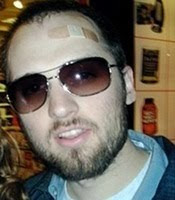
All five seasons of Lost follow a parabola of sorts, with highest points of action at the beginning and end of each year’s collection of episodes. Season Five literally opened with a lot of flash, a razzle-dazzle series of time jumps backward, forward, and sideways. Eventually, the drama settled down into a smoothly-curved valley inside the happy yellow houses of the 1970s Dharma Initiative. Episode 5.13 Some Like it Hoth, which closed with Miles peering into the window of the Chang home, represented the last fleeting moment of domestic tranquility before the Island accelerated back into crisis mode. The Variable revamps the show’s conflict quotient, without using any Because-You-Left-style or Constant-style time travel. Instead, it relies on the old Lost tools of the trade: a tragic series of flashbacks, a handful of twists and reveals, and a desperation plan to get everyone back to where they are supposed to be. Along the way, Jeremy Davies provides the year’s best performance (by any cast member not named Terry O’Quinn), during both his first lead effort and his swan song. The Variable is one of those rare achievements that succeeds both as a character study and as a thrilling piece of plot development.




































